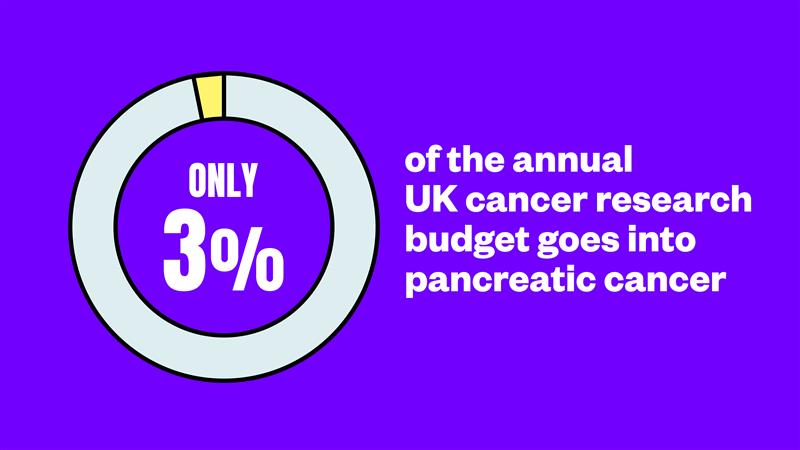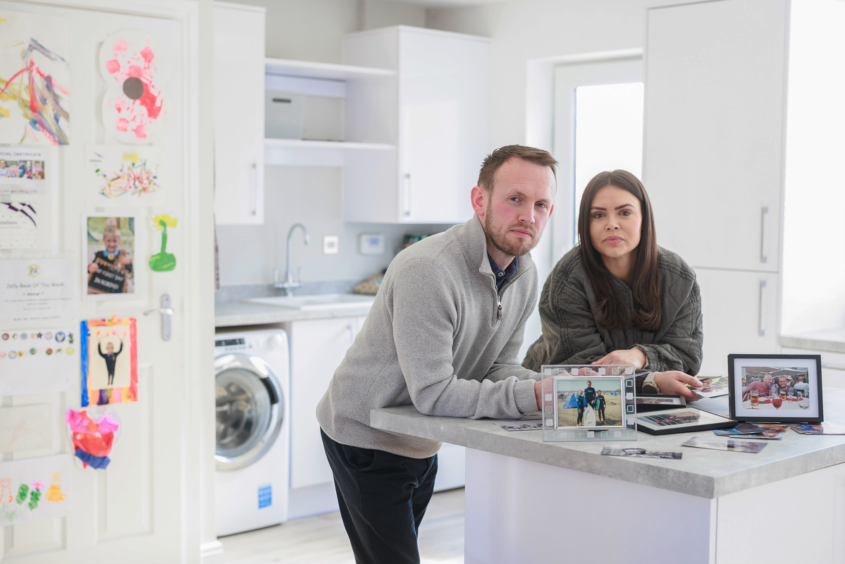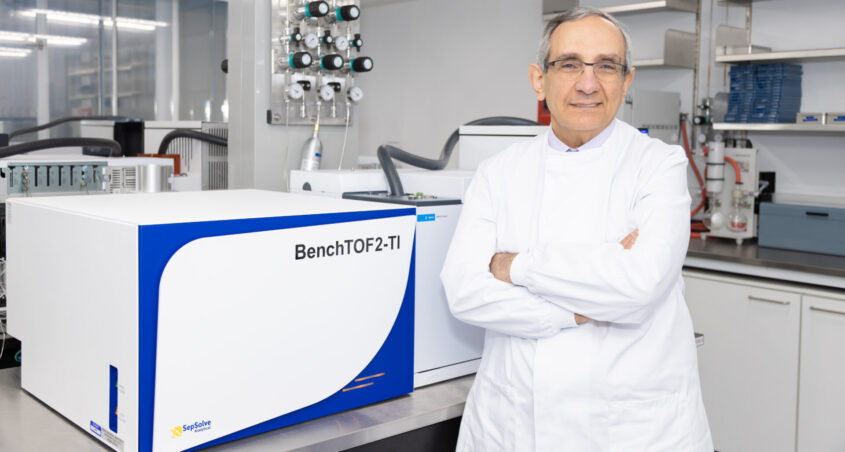Early diagnosis is the key to survival.
As a charity, we’re funding research that could put a test to detect pancreatic cancer into the hands of GPs across the country.
Unlike other cancers, right now, diagnosing people early is nearly impossible – GPs have no simple way of spotting the disease early enough for people to be saved.
Our Unite. Diagnose. Save Lives. campaign is calling on governments across the UK to prioritise early detection of pancreatic cancer. Early diagnosis is the key to survival – it would save thousands of lives every year.
We handed in our open letters to all governments across the UK in early June 2025.
Our campaign tour of UK parliaments
Because health is a devolved issue, our open letters looked a bit different depending on country.
Over recent years, promising pancreatic cancer research developments and surveillance programmes have put early detection within closer reach. Now, we need backing from the Government to make early detection a reality.
Our open letter to The Prime Minister calls for our three demands to be part of the new National Cancer Plan for England, due to be published this year.
We welcomed the Scottish Government’s commitment in its cancer strategy to improve earlier and faster diagnosis with a particular focus on less survivable cancers – including pancreatic cancer. Now, we need their help to make early diagnosis a reality.
Our open letter to the First Minister of Scotland calls for our three demands to be prioritised in the Scottish Government’s existing and upcoming plans to deliver its cancer strategy.
A shocking 80% of pancreatic cancer patients in Wales receive their diagnosis too late for potentially lifesaving treatment. Our open letter to the First Minister of Wales calls for our three demands to be prioritised in Wales’ cancer strategy implementation plans.
Open letter for Northern Ireland
We have welcomed the progress the Department of Health has made working with Pancreatic Cancer UK and NIPANC (the pancreatic cancer charity in Northern Ireland) to deliver an optimal care pathway for people with pancreatic cancer. However, 80% of pancreatic cancer patients in Northern Ireland are still diagnosed too late to access this pathway and receive any treatment.
Our open letter to the First Minister of Northern Ireland calls for our three demands to be prioritised in the Department of Health’s ongoing work to improve cancer outcomes.
Watch our video with Alfie, our Head Influencing & Health Improvement, to learn more about how this campaign could transform early detection of pancreatic cancer.

Research into pancreatic cancer is vastly underfunded. Shockingly, pancreatic cancer receives just 3% of the UK cancer research budget. This is two and a half times less than research spend on breast cancer.
There’s been incredible progress in other cancers, like leukaemia, thanks to significant and consistent research investment. Between 1972 and 2011 alone survival has quadrupled.
We need governments and cancer ministers across the UK to:
There are several promising early detection tests for pancreatic cancer under development, including tests that our incredible supporters have helped to fund. For example, we are currently funding a study at Imperial College London looking at how breath samples taken in a GP surgery could pick up pancreatic cancer earlier.
We need UK leaders to back these promising tests and give the NHS the investment it needs to get them in the hands of GPs across the UK as soon as possible.
We already know that some people are at higher risk than others of developing pancreatic cancer – such as those with a family history of pancreatic cancer or pancreatitis, and people with new onset diabetes.
We need UK leaders to invest in and roll-out regular monitoring for those at the highest risk of developing pancreatic cancer through:
Currently, just 3% of the UK research budget is spent on pancreatic cancer. We need this research to be given far more focus and funding.
Sustained funding is essential because meaningful research breakthroughs require continuous, reliable investment over many years to support the full cycle of research; from lab studies through to clinical trials and implementing new treatments in the health system: from bench to bedside.
If UK leaders were to implement these changes, we would transform survival rates for pancreatic cancer.

“My dad, Alan, was a calm, positive person who provided excellent advice and anything we needed would never be too much for him. He would take our worries or concerns on board and work through them with us.
When he was diagnosed with pancreatic cancer last June, I tried to stay positive for dad and our family, but it was devastating. We had a holiday booked which we cancelled. Day by day, things were getting worse. He was eating less. My sister Lucy obsessed over trying to figure out the best things for him to eat to maintain strength and weight, but nothing worked.
If there was a diagnostic test, we’d have had more precious time to make memories with him.
As it was, everything happened so quickly that we weren’t ever given a chance. We need earlier detection, so people actually have the opportunity for treatment, but we also, evidently, need better standards of care for people with this disease.”
Families of people diagnosed with pancreatic cancer are left with only hope to hold on to.
But hope is not enough. The disease must be detected sooner. And it can be.
As a charity, we’re funding research that could put a test to detect pancreatic cancer into the hands of GPs across the country.

In a world-first for the disease, a research team at Imperial College London led by Professor George Hanna are studying how breath samples taken in a GP surgery could ensure people with early pancreatic cancer symptoms can be rapidly referred for scans and lifesaving treatment.
Tests like these could transform early diagnosis for pancreatic cancer, saving thousands of lives every year.
Now, governments need to do more to make this a reality. More drive, more investment, more attention. So, we can give people with pancreatic cancer more than hope.
It’s time to unite, diagnose and save lives.